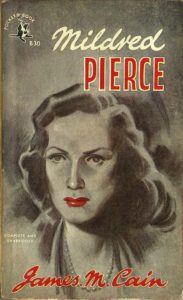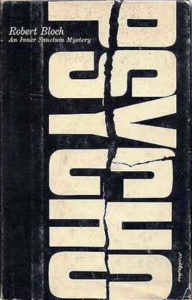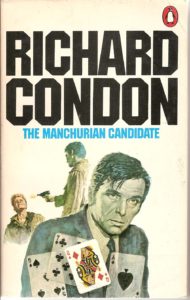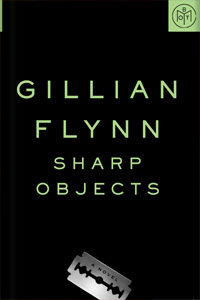Ever since Medea took her revenge on her two-timing husband by icing her own kids, examinations of the darker aspects of motherhood have proven a regular fixture in the literature of crime and punishment.
The following books range across a wide variety of subgenres—from hardboiled noir, to straight horror, to conspiracy thriller, to the uncategorizable—but at the heart of each is an exploration of the depths a mother is willing to go to either save or damn their offspring.
For Mother’s Day, here are 7 dark novels about motherhood.

Mildred Pierce, James M. Cain
The American roman noir as we know it was practically invented by James M. Cain by way of his first two novels, The Postman Always Rings Twice and Double Indemnity. With his fourth novel, 1941’s Mildred Piece, Cain eschewed the violent acts of murder central to his previous work and instead focused on crimes of the heart (with a little bit of embezzlement thrown in for good measure).
The title character is a tough, sympathetic “grass widow” and mother of two, struggling to get by in the Great Depression after her husband abandons her. Opening her own restaurant, she almost manages to make a success of herself, but is ultimately undone by her ungrateful, scheming daughter, a brilliant musician whose ruthless climb to the top was made possible through Mildred’s sacrifice. While Mildred Peirce may not contain the mortal violence we usually associate with hardboiled noir, it’s as fatalistic as any book within the genre.
The eventual 1945 Hollywood adaptation—which starred Joan Crawford in one of her most iconic roles—added a murder and a more traditionally cathartic (if not happy) ending, while the 2011 HBO limited series version stayed extremely faithful to Cain’s original.

Psycho, Robert Bloch
Even though she never appears in Alfred Hitchcock’s adaptation of Robert Bloch’s hit horror-noir novel Psycho (except as a skeleton), there is no mother in all of pulp fiction or film whose name conjures as much terror as Mrs. Bates. So, domineering is her influence on her wallflower of a son Norman that even after he fatally poisons her (along with her lover), he keeps her alive by absorbing her personality into his own.
The late Norma Bates’s backstory and relationship with Norman is sketched in greater detail in Bloch’s original novel than in Hitchcock’s instantly classic film, although the story shakes out basically the same. From page to screen, Psycho is responsible for some of the most immediately recognizable characters, set pieces and dialog in all of horror. You might go so far as to say it’s the mother of all modern horror stories.

The Manchurian Candidate, Richard Condon
After Mrs. Bates, the matriarch whose sinister presence casts the largest shadow over classic Hollywood has got to be Eleanor Iselin, née Shaw. The political mastermind behind a communist plot in which American soldiers are brainwashed and turned into mindless assassins, Eleanor uses her own son, Raymond, as the main pawn in her diabolical schemes. But even when she’s not literally hypnotizing her son, she lords over the poor sap like the would-be dictator she is (author Richard Condon based her character, spiritually at least, on the red-baiting Senator Joseph McCarthy’s vile chief counsel, Roy Cohn).
Angela Lansbury gives one of the all-time great villainous performances in John Frankenheimer’s brilliant 1962 film adaptation, although the ferocity of her performance belies the amount of time she’s actually on screen. Condon’s novel makes Eleanor much more active in the various murder plots, while also focusing more on her own backstory, which includes having been molested by her own father. This cycle of abuse repeats itself, with Condon being much more explicit about the incestual relationship between Eleanor and Raymond. Whereas the movie merely (though still chillingly) hints at such, the novel sees the two consummate the act during one of the surreal hypnosis sessions.

The Grifters, Jim Thompson
As you may have noticed, queasy sexual tension between mothers and sons run heavy throughout these titles, and none come queasier or heavier than in this short 1963 novel from America’s “Dimestore Dostoevsky” Jim Thompson. Incest is one of the running themes throughout Thompson’s nightmarish oeuvre, with this being the infamous example. It also happens to be one of his greatest novels, make of that what you will.
This lean and very, very mean tale is set between mother and son con artists Lily and Roy Dillon, who reunite after several years of estrangement. The sexual tension that has always existed between the two—partly the result of their closeness in age, with Lily having given birth to Roy when she was still practically a child herself—boils over as they find themselves boxed in by the conniving schemes of Roy’s femme fatale girlfriend (who just so happens to bear a striking resemblance to Lily), leading to a violent climax that would set both the ancient Greeks and Freud himself reeling.
The novel was beautifully adapted by Stephen Frears in 1990, with Angelica Huston giving one of her greatest ever performances as the hardboiled but inherently sympathetic Lily.

The Fifth Child, Doris Lessing
The least categorizable novel on this list, this eerie reimagining of the changeling myth from Nobel Prize winner Doris Lessing starts out a realistically detailed look at suburban family life in the England of the post-war decades, before transforming first into a slow burn domestic thriller before stepping full-on into the realm of the weird tale.
Harriet and David Lovett are an old-fashioned young couple who set about making their dream of a large family and old-fashioned domesticity a reality by having four children in short order. But their happy (if financially strained) existence turns into a nightmare with the unexpected arrival of a fifth child, Ben.
Harriet suffers an extremely difficult pregnancy, only to give birth to a troglodytic imp with fearsome strength and a preternatural disposition to violence. As the boy grows older and begins to show more signs of criminality and what can only be described as an alienness, the family unit around him crumbles, with Harriet finding herself as much the target of resentment as Ben.
The book can and has been read as a potent metaphor for postpartum depression, the oppressive societal strictures and expectations placed on motherhood, and what’s it like to raise a child with physical and/or cognitive disabilities, but as Lessing makes increasingly clear throughout this novel—and eventually explicates in its sequel, Ben, in the World (2000)—this is a mythic story about how the laws of modernity are no match for the primordial forces that exist behind the veil of our supposed reality.

Sharp Objects, Gillian Flynn
In Flynn’s debut novel, a troubled reporter returns to her small Missouri hometown to investigate the gruesome murder of two teenage girls and ends up discovering the truth behind her own late sister’s death, as well as the physical and psychological harm currently being inflicted on her much younger half-sister.
At the center of it all is Adora Crellin, an aristocratic businesswoman from genteel stock who, along with being the protagonist’s mother, is also the matriarch of the town in which the novel is set. The scars—both literal and figurative—that the outwardly cold, but deeply unhinged Crellin has inflicted on both her daughters and her neighbors are eventually revealed in a series of devastating revelations.
While not as deliciously evil or charismatically brassy as some of the other mothers on this list, Adora Crellin (who would be brought to life by Patricia Clarkson in the 2018 HBO miniseries adaptation of the novel) stands as one of the most legitimately unnerving.

You Will Know Me, Megan Abbott
By the time Megan Abbott released You Will Know Me in 2016, she had made the jump from hardboiled noirs set in the very grown up worlds of the first half of 20th century America to modern stories about teenage girls, which, as it turned out, were no less shadowy or treacherous.
As with the three novels that preceded it, You Will Know Me is set amongst an extremely cloistered hothouse society—in this case, the world of teenage gymnastics—only here, the protagonist is one of the adults. Along with her husband, Katie Knox has dedicated the majority of her time, resources and energy to her daughter Devon, a gymnastics prodigy who seems destined for Olympic glory…until the suspicious murder of a handsome young training assistant threatens to burn their entire world down. In attempting to unravel the mystery surrounding her daughter role in the death, Katie discovers what her all her sacrifices has truly begot.
In its sympathetic but unblinking examination of a mother undone by the brilliant monster she helped create, You Will Know Me is the spiritual successor to Mildred Pierce, bringing this list full circle.

















